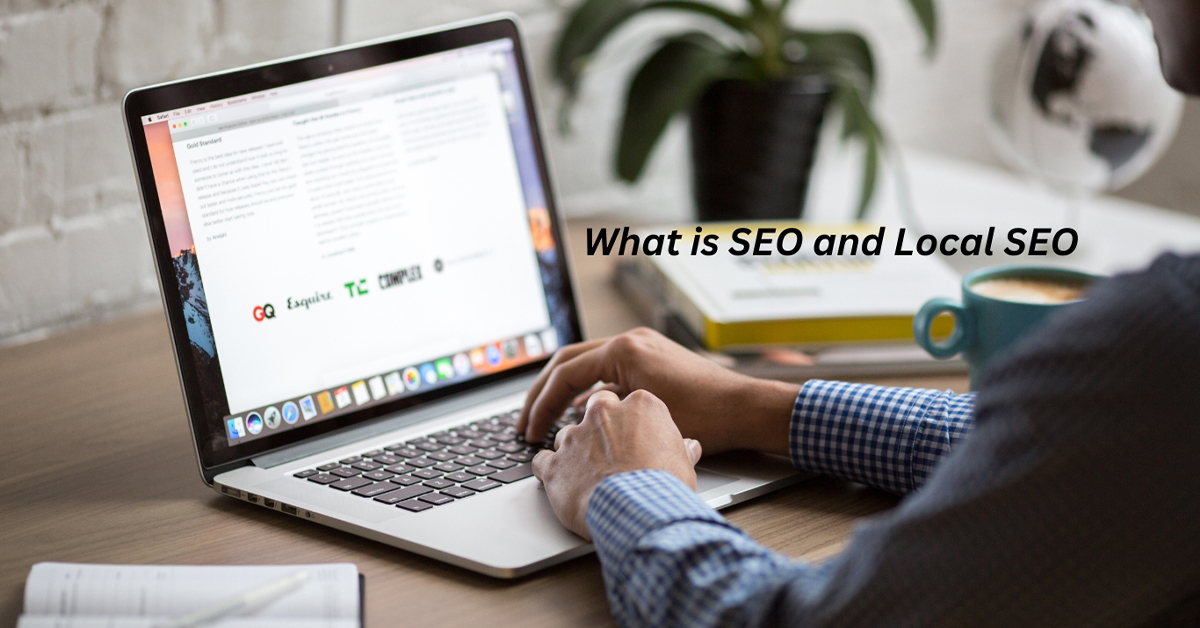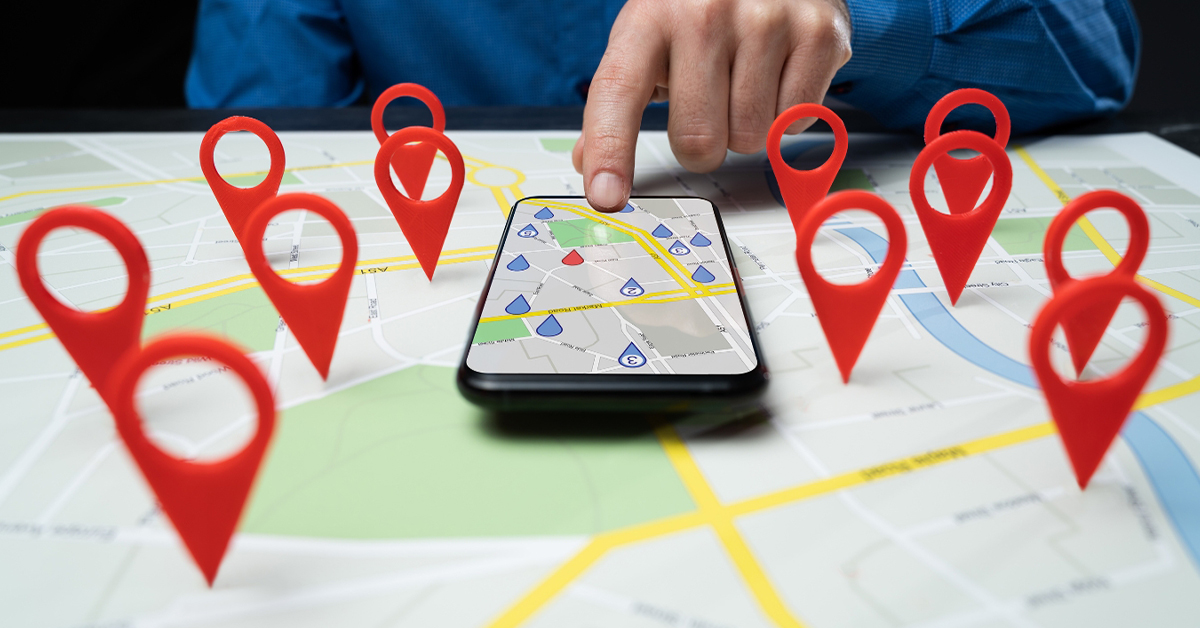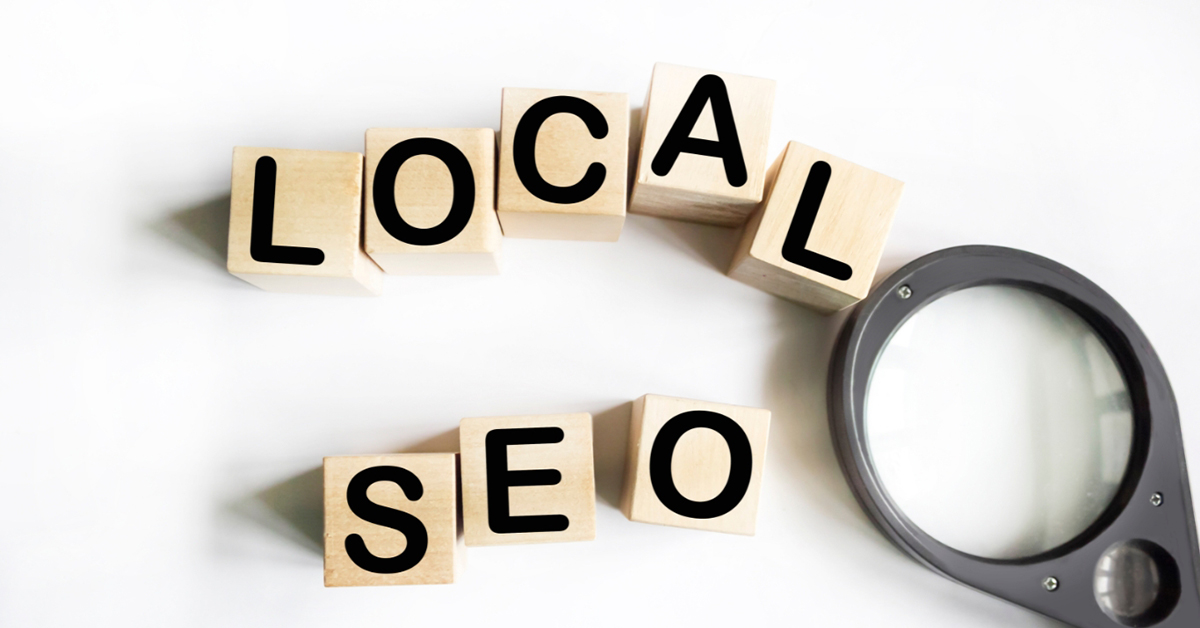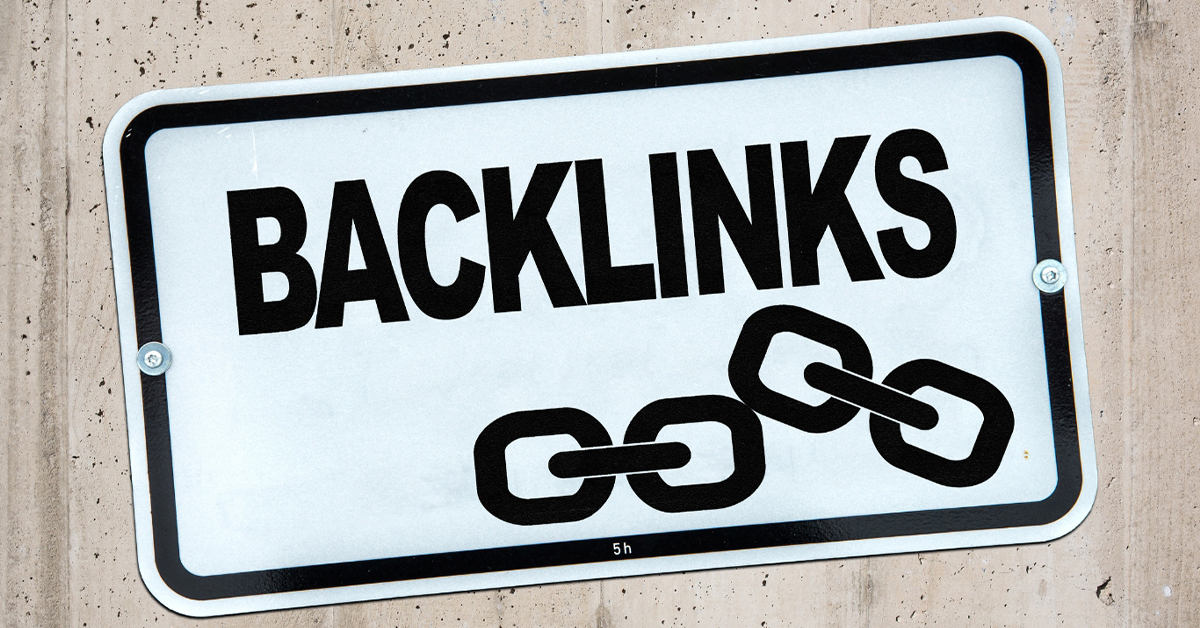SEO is a process of optimization that creates a tunnel for organic traffic to bring them to your website. However, you must know which part of your traffic falls under local or global SEO to make a profitable marketing strategy.
Here's the difference: Traditional SEO relies on improving your site's ranking from the default search engine web result section. At the same time, local SEO focuses on improving your visibility, mainly in search engine maps and image sections.
In this blog post, we'll explain what sets these two strategies apart and explore how they can significantly impact your business's reach and reputation.
Difference Between SEO and Local SEO: What are they?

It's important to know what SEO and local SEO are. Here is a brief discussion of SEO and local SEO.
Definition Of SEO
Search engine optimization makes a website appear higher in search engines like Google. This involves making changes on and off the website to improve its visibility.
Purpose
The main goal of SEO is to help websites reach more people. A website can gain more visitors by improving its search ranking, leading to more business or influence.
Key Components
SEO has 3 main parts, each playing a crucial role in a site's success:
- On-Page SEO: This focuses on using the right keywords and descriptions directly on the website. It's important to have good-quality content, relevant titles and descriptions.
- Off-Page SEO: This involves building a website's reputation through links from other sites and social media. Links from other sites indicate to search engines that your site is trustworthy and relevant.
- Technical SEO: This ensures your site runs smoothly and is easy to navigate for search engines. A fast, mobile-friendly website that search engines can easily explore is crucial for good technical SEO.
What is Local SEO?
Businesses need local SEO if they want to be found by customers in their area. Unlike general SEO, which improves a website's visibility globally, local SEO aims to attract customers in specific geographic locations. It helps businesses show up for local searches, making it easier for nearby customers to find them.
Purpose of Local SEO

The main purpose of Local SEO is to improve visibility for local businesses. By optimizing for local searches, businesses reach out to customers looking for their services or products nearby. This can lead to more foot traffic, inquiries, and sales from people in the local area.
Key Components of Local SEO
To effectively use Local SEO, there are several important components to focus on:
- Google My Business: One of the most important steps in Local SEO is claiming and optimizing your listing on Google My Business (GMB). This tool on Google can manage online presences, including searches and maps.
Keeping your GMB listing updated with accurate information like your address, hours, and contact details can significantly improve your local search ranking.
- Local Citations: Be consistent with your local citations. Ensure all online directories have the same name, address, and phone number (NAP). This helps search engines verify your business information and boosts your local credibility.
- Local Reviews: Customer reviews and ratings are crucial in Local SEO. You can increase the number of customers you attract by receiving positive reviews. Leave reviews for satisfied customers and always respond to feedback to show that you value customer opinions.
- Localized Content: Creating content relevant to local audiences can greatly increase your Local SEO efforts. This can include blog posts about local events, news, or content highlighting how your business serves the local community. Localized content helps connect with residents and shows your business’s commitment to the area.
Key Differences Between SEO and Local SEO

Understanding the differences between SEO (Search Engine Optimization) and Local SEO is crucial for any business aiming to improve its online presence. Let's explore how their target audiences differ, which is a key aspect of their strategies.
SEO: Reaching a Global Audience
SEO reaches a broad audience. If your business wants to attract customers from all over the world or nationwide, SEO is the right strategy for you.
- Global Reach: SEO helps your content show up in search results worldwide.
- Broad Keywords: Use keywords relevant to a wide audience to capture more search traffic.
- Wide Competition: You will compete with many businesses globally, meaning you must stand out.
Local SEO: Connecting With the Community
Local SEO involves targeting people in your area. It's perfect for restaurants, local shops, or services serving a specific region.
- Local Focus: It helps you appear in local search results when someone nearby searches for your services.
- Location-Based Keywords: Use specific keywords that include your city or region to attract local customers.
- Community Engagement: Connect with your local audience through community events or local partnerships.
SEO: Organic Search Results
SEO optimizes websites to rank higher in organic search results, which are found below ads on search engine pages. Results are algorithm-based and not influenced by paid ads.
- Broad Audience Reach: SEO targets a global or national audience, aiming to attract visitors regardless of physical location.
- Keyword Optimization: SEO emphasizes using relevant keywords throughout your site’s content to match what users search for.
- High-Quality Content: Producing informative, engaging content that provides value to readers is a cornerstone of successful SEO.
- Backlink Building: Getting links from reputable sites helps improve your site’s authority and rank in organic search results.
Local SEO: Local Pack Results and Organic Results
Local SEO is all about improving your website’s visibility within a specific geographic area. It targets local searches, where users look for nearby businesses or services.
- Local Pack Focus: Local SEO aims to get your business listed in the local pack results, which appear above the organic listings and often include a map. These are highly visible and can drive significant traffic to local businesses.
- NAP Consistency: Ensuring that your business’s Name, Address, and Phone number (NAP) are consistent across all online platforms is critical for local SEO.
- Local Keywords: Local SEO uses keywords that include location-based terms (like “near me” or city name) to attract customers in a specific area.
- Google My Business: Claiming and optimizing your Google My Business profile is vital for local SEO, as it helps your business appear in local searches and on Google Maps.
SEO: Broad Keywords
You can improve your website's search engine ranking. It uses broad keywords to reach a wide audience.
- Wide Reach: SEO targets users worldwide, not just those in a specific area. For example, a clothing brand might use keywords like "summer dresses" to attract shoppers nationwide.
- Generic Keywords: Keywords are chosen to appeal to a broad audience and aim for high search volume. Examples could include terms like "best smartphones" or "top gaming laptops."
- High Competition: Because the audience is larger, there’s often more competition for these keywords. To stand out, businesses often need quality content and strong backlinks.
- Practical Tip: Create high-quality content that answers common questions or solves problems to improve your SEO ranking.
Local SEO: Geo-Specific Keywords

Search engine optimization for local searches focuses on attracting people in a specific local area. It uses geo-specific keywords to improve visibility in local searches.
- Targeted Audience: Local SEO aims to reach users in a particular geographic location. For instance, a Chicago bakery might use "Chicago bakery" to attract local customers.
- Location-Based Keywords: Keywords include location names to attract nearby customers. Examples include "plumber in New York" or "Los Angeles dentist."
- Less Competition: Since the focus is on a smaller area, there’s usually less competition for these keywords. This makes it easier for small businesses to rank higher locally.
- Practical Tip: Ensure your business details are complete and consistent across online directories to boost your local SEO.
Link Building in SEO
One of the key strategies is to acquire high-quality backlinks. Here's what you need to know:
- High-Authority Backlinks: These are links from websites that search engines trust. They give your website credibility and can improve your search rankings.
- Wide Audience Reach: SEO targets a broad audience, so getting backlinks from well-known sites is important.
- Content Quality: Creating valuable and shareable content is essential to attract these backlinks naturally.
Link Building in Local SEO
Local SEO is all about increasing visibility within specific geographic areas. It uses different tactics to ensure your business stands out locally.
- Local Backlinks: Focus on getting links from local businesses, newspapers, and community websites. This shows search engines that your business is related to the local area.
- Citations: Websites that mention your business's name, address, and phone number. Consistent citations help boost your local search presence.
- Community Engagement: Sponsor community events or participate in local activities to gain local backlinks and improve your brand's local reputation.
Importance of SEO & Local SEO
SEO
Search Engine Optimization (SEO) plays a crucial role in the success of any online business or website, enhancing visibility, driving traffic, and establishing credibility. In pursuing high-quality backlinks, a key strategy is prioritizing local SEO. This can elevate your website’s authority and forge connections within your community. Discover the importance of local SEO through its benefits: local visibility, foot traffic, and community engagement.
Visibility: How SEO Helps Businesses Appear in Search Results
Visibility is a major advantage of SEO. It ensures that your website is seen by people who are searching for related topics.
- Higher Rankings: SEO helps your site rank higher on search engines like Google.
- Wider Audience: More visibility means reaching a larger audience.
- Brand Awareness: Being visible increases awareness of your brand among potential customers.
Traffic: Driving Organic Traffic to Websites
Driving organic traffic is one of the primary goals of SEO. It refers to visitors who find your site through search engines.
- Cost-Effective: Unlike paid ads, organic traffic is free.
- Quality Visitors: People who find you through search are often more interested in your content.
- Long-Term Results: Well-optimized content can bring traffic for months or even years.
Search Rankings: Establishing Credibility
Credibility is necessary for gaining the trust of your audience. High search rankings contribute significantly to this.
- Trustworthy Image: Search engines often give websites that appear at the top of their results a higher rating.
- Authority in Industry: Consistently ranking well for relevant keywords establishes you as an authority in your field.
- Customer Confidence: Credibility increases your business's chances of winning customers.
Local SEO

Local Visibility: Enhancing Presence in Local Search Results
Improving local visibility means making sure your business appears in local search results. This helps potential customers find you easily.
- Claim Your Business: Register your business on platforms like Google My Business. This will show your business in search engine results and maps.
- Use Local Keyword: Use local keywords in your site content to help search engines connect you with local customers.
- Get Local Reviews: Encourage satisfied customers to leave positive reviews. High ratings can improve search engine visibility.
Foot Traffic: Driving Customers to Physical Locations
Increasing foot traffic is about getting more people to visit your store or office. Local SEO can guide customers to your doorstep.
- Update Your Information: Ensure your address, phone number, and hours are correct online. This helps customers find you easily.
- Promote Local Deals: Share special offers or events at your location to attract more visitors.
- Collaborate Locally: Partner with nearby businesses for joint promotions to drive more people to your location.
Building Relationships Within the Community
The involvement of your local community can help you develop relationships and improve your business reputation.
- Participate in Local Events: Attend or sponsor community events to meet and connect with locals.
- Support Local Causes: Show your commitment by supporting local charities or initiatives. This strengthens community ties and boosts your visibility.
- Engage on Social Media: Use local hashtags and interact with local followers to enhance your online presence within the community.
How to Implement SEO & Local SEO: 4 Strategies
SEO Strategies
Effective SEO strategies are essential for increasing your website's visibility and ranking on search engines. Here’s a guide on implementing key SEO strategies to boost your site’s performance.
Finding Relevant Keywords: Tools and Techniques
Keyword research is the foundation of SEO. Search terms help you determine what your audience is seeking, which in turn helps you target those keywords effectively.
Use Keyword Research Tools:
- Google Keyword Planner: Find keyword ideas and see search volume.
- SemRush: Analyze keyword competition and trends.
- Ahrefs: Discover keyword opportunities and track rankings.
Analyze Competitor Keywords:
- Identify Competitors: Look at which keywords competitors are ranking for.
- Use Tools: Utilize tools like SemRush or Ahrefs to analyze their keyword strategy.
Consider Search Intent:
- User Intent: Determine if the keyword reflects the user's intent (informational, navigational, transactional).
- Long-Tail Keywords: Target specific phrases that show clear intent.
Content Creation: Best Practices for Creating SEO-Friendly Content
Creating high-quality, SEO-friendly content is crucial for engaging your audience and improving search engine rankings.
Focus on Quality:
- Write for Your Audience: Create relevantand useful content for your readers.
- Concise and clear language: Avoid technical terms and write in a way that is easy to understand.
Optimize On-Page Elements:
- Title Tags: Include target keywords and make them compelling.
- Meta Descriptions: Write concise summaries that encourage clicks.
- Headings: Use headings and subheadings to structure content and include keywords.
Incorporate Keywords Naturally:
- Avoid Keyword Stuffing: Use keywords naturally and in context.
- Use Synonyms and Related Terms: This helps rank your target keywords for variations.
Link Building: Strategies for Acquiring Quality Backlinks

A key component of SEO is link building, which involves getting other websites to link to your own. High-quality backlinks can significantly boost your site’s authority and ranking.
Create Valuable Content:
- High-Quality Articles: Write informative and engaging content others want to link to.
- Infographics and Resources: Develop visual or resourceful content that’s easy to share.
Reach Out to Industry Influencers:
- Build Relationships: Connect with influencers and request backlinks.
- Guest Posting: Include links to your website in articles you write for other websites.
Use Social Media:
- Promote Your Content: Engage in social media sharing to increase your visibility and backlinks.
- Engage with Followers: Build a community that values and shares your content.
Technical Optimization: Making Sure Your Website Works
By optimizing your website, you ensure that it is user-friendly, fast, and efficient, which is crucial for both user comfort and search engine ranking.
Improve Site Speed:
- Optimize Images: Compress and use appropriate image formats.
- Minimize Code: Reduce the size of CSS, JavaScript, and HTML files.
Ensure Mobile-Friendliness:
- Responsive Design: Make sure your website adjusts to different screen sizes.
- Mobile Testing: Use tools like Google’s Mobile-Friendly Test to check performance.
Fix Broken Links:
- Regular Checks: Use tools to find and fix broken links on your site.
- Update Links: Ensure all internal and external links are working properly.
Local SEO Strategies
Local SEO is all about making sure your business shows up in search results when people nearby are looking for your services. Here are some strategies to boost your local SEO and increase your online presence.
Google My Business Optimization
Google My Business (GMB) is a free tool for businesses to manage their online presence. Optimizing your GMB listing is crucial for local SEO success.
- Claim your business listing: Make sure your business is verified on GMB.
- Keep information updated: Regularly update your business hours, address, and contact details.
- Add photos: Make sure your business has high-quality images to attract more customers.
- Use keywords: Your business description should include relevant keywords.
Local Citations

Your business is cited locally on other websites and directories. They help search engines verify your business’s authenticity and improve local rankings.
- Consistency is key: Ensure all platforms use the same business name, address, and phone number.
- List on popular directories: Add your business to well-known sites like Yelp, Yellow Pages, and local directories.
- Monitor your citations: Regularly check and update your citations to maintain accuracy.
Review Management
Customer reviews can influence potential customers and impact your local search rankings. Managing these reviews is essential for building trust and credibility.
- Encourage reviews: Allow satisfied customers to leave positive reviews on your Google My Business profile or other sites.
- Respond to reviews: Be responsive to positive and negative feedback from customers.
- Learn from feedback: Use reviews to identify areas for improvement in your business.
Localized Content
Local search visibility can be improved by creating content that resonates with your local audience.
- Write about local events: Share news or stories about events in your area.
- Use local keywords: Integrate location-specific keywords in your content to target local searches.
- Engage with local culture: Reference local culture or landmarks to make your content more relatable.
Conclusion
In wrapping up our exploration of SEO and Local SEO, it's clear that both play pivotal roles in enhancing your business's online presence. SEO is your go-to for reaching a broader audience, driving organic traffic, and establishing credibility on a global scale. On the other hand, Local SEO hones in on boosting your visibility within specific communities, driving foot traffic, and fostering local relationships.
As you reflect on your current marketing strategies, consider how incorporating Local SEO could expand your reach within your community and elevate your business's local visibility. Whether you're aiming for global recognition or local dominance, a well-rounded approach to SEO can be the game-changer your business needs.

